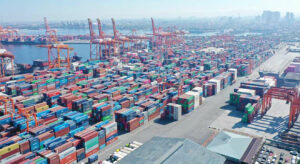BSP to further ease FX transactions

THE PHILIPPINE central bank is considering further easing documentary requirements for foreign exchange (FX) transactions through changes to its FX manual.
Under a draft circular posted on its website, processing of foreign currency loans, inward investments and other FX transactions filed with the Bangko Sentral ng Pilipinas-International Operations Department will be free of charge.
The central bank may verify if foreign exchange transactions and reports comply with the manual. “A violation of any of the provisions of the FX manual and/or the conditions imposed on the approval/registration/authority issued by the BSP may be grounds for cancellation,” it said.
Stakeholders have until Feb. 2 to comment on the circular.
The BSP monitors foreign portfolio investments registered with it through authorized agent banks and foreign exchange corporations.
Investments need not be registered unless the investor buys foreign currency from banks for conversion to pesos or earnings for remittances.
A BSP registration document must be produced as evidence of the registration of investments to the BSP.
In the draft circular, the central bank revised 15 appendices and annexes of the FX manual and removed the report on interim peso deposits of registered foreign investments.
Authorized agent banks must submit to the central bank a list of existing and valid registration documents within two weeks, the BSP said.
The central bank will give banks until Sept. 30 to continue reporting the transactions of registered investments using the old report forms.
Banks should also “make the necessary preparations and adjustments to their systems and processes to ensure compliance with the new reporting guidelines.”
The central bank is also considering allowing the sale of foreign exchange without the need for BSP approval for nontrade current account transactions.
Other changes include allowing banks and FX companies to sell foreign exchange to tourists or migrant workers returning to the Philippines, called “balikbayan” in Filipino.
“Departing nonresident tourists and balikbayans may reconvert at airports or other ports of exit unspent pesos up to a maximum of $10,000 (P565,000) or its equivalent in other foreign currency, calculated at prevailing exchange rates, without showing proof of previous sale of FX for pesos,” the BSP said.
It will also require the registration of debt securities issued by private sector residents.
This investment instrument falls under foreign direct or foreign portfolio investments depending on the degree of control or influence of the investor in the investee firm, the central bank said.
Debt securities are negotiable instruments such as notes, bonds and convertible notes that serve as evidence of a debt, it said.
“Nonparticipating preferred shares that pay a fixed income but do not provide for participation in the distribution of the residual value of an incorporated enterprise on dissolution, are also classified as debt securities,” it added.
The BSP has undertaken various liberalization measures to ease foreign exchange rules to facilitate transactions of banks, public and private companies, small and medium enterprises, overseas Filipinos and the public in general, it said earlier.
The liberalization is being undertaken in a well-calibrated manner, giving due consideration to prevailing domestic and international economic and financial conditions, while ensuring that timely prudential mechanisms such as documentary requirements and safeguard measures are in place, it added.
The Philippine central bank has approved and completed 12 rounds of FX policy liberalization since 2007. — Keisha B. Ta-asan


![Photo of [B-SIDE Podcast] Turning vegan](https://redstateinvestings.com/wp-content/uploads/2022/12/12.26.22-B_Side_Vegan_1400x1400-e1672197834199-300x300-5A3Krz-300x220.jpeg)

